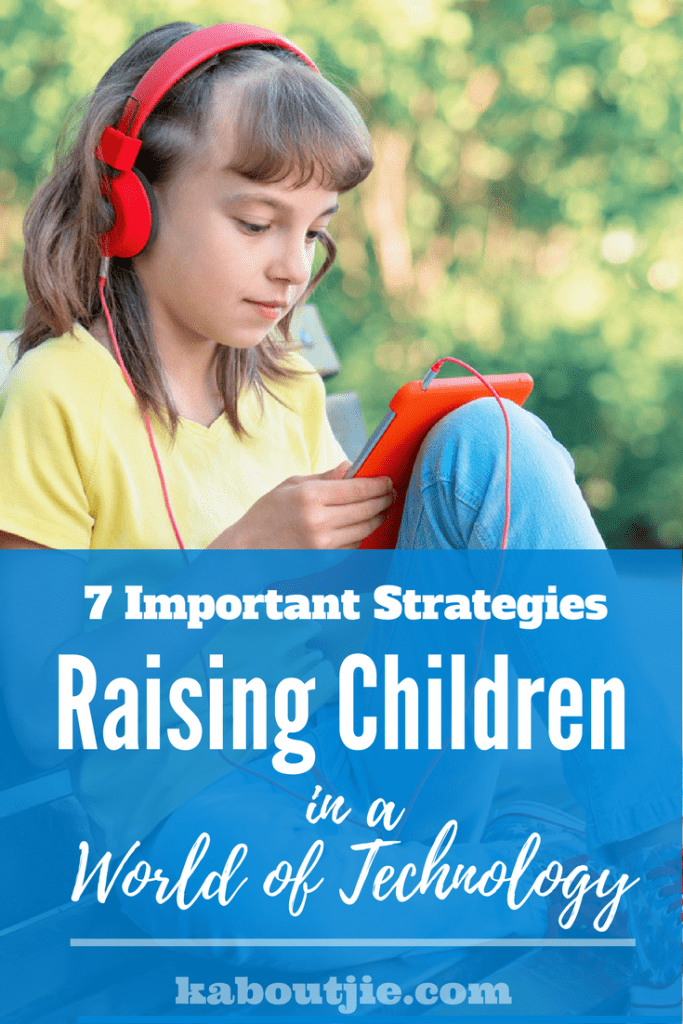We live in a digital world, a movable, changeable world. And as expected, there are numerous technological advancements that take place almost on daily basis. At times, it becomes quite difficult to cope with them but we have no choice but to adapt to these changes. Teach your children to be tech-savvy in the digital age with our list of strategies.
- Educate Your Children About The Dangers Of Technology
Knowledge is power, so education is key. Teach your children about the dangers of online predators and bullying – for both the bully and the bullied. It is also important that they are aware that the rose-tinted way people depict themselves online is probably not an accurate depiction of their real lives.
Let your children know there is more to life than likes and followers. Another thing to discuss with your kids are privacy settings (especially on social media) and inform them that using these settings doesn’t make their content truly private but becomes part of their digital footprint. And lastly, educate them on the fake news problem and how to distinguish credible content from unreliable content. The goal here is no to discourage their use of things like the social media because truly, you would fail miserably at that. The goal is to empower them so they have an objective approach of the way they engage with strangers on such platforms.
- Create A Media Use Model For Your Family – And Stick To It
Technology is not a bad thing. In fact, it can be (and is already) very useful. And it’s going to be around for a while so banning your children from using it will set them back in the future.
It’s just when technology use gets out of hand and starts to affect the way your children function in the world that it becomes a problem. So how do you, as a parent, prevent this from happening? Set aside a certain bracket of time a day for technology use as you would for sleep, exercise and homework. Basically, try to help them strike a balance between the use of technology and meeting their other responsibilities.
- Employ Media Use Guidelines For Small Children
This one doesn’t require you to be a genius; the following are some crucial points you can score using this approach.
– Below 18-24 months: No technology other than video chatting is recommended.
– 18-24 months: Limited screen time recommended and only while you are with them as they learn from that interaction.
– 2-5 years old: 1 hour of screen time a day recommended.
In order to make the most of this, you could have a video wall in your home instead of your normal television screen sets. A video wall is especially significant in that it contains different screens that overlap on one big screen. As your little ones go about chatting on Facebook, you could be watching your favorite program on the same screen. This helps monitor their use of social media and ensures you correct them whenever they go astray.
- Keep Technology Out Of The Bedroom
LED screens affect sleep negatively as does the temptation to stay online after lights-out. Combat this by keeping all digital media out of your children’s bedrooms. Take this opportunity to charge your devices.
Remember, sleep is a significant part of your children’s growth and development and when it comes to it, nothing short of an 8-hours uninterrupted sleep is recommended. Ensure the bedroom ambience is set in such a way that whenever they are in it, it becomes easier to drift off to sleep. One way of achieving that is definitely through the removal of all technology away from the bedroom.
- Be Strict With Age-Restricted Technology
I would recommend not agreeing to let your children have social media accounts until they are teenagers – coincidentally Instagram and Facebook have listed 13 years old as their minimum age. I recommend this because it takes a certain maturity to handle the social pressures of such platforms, and a child just wouldn’t be equipped for that. For a teenager, though, social media is a great tool for self discovery and connecting with like-minded people.
And just in case they exhibit undue curiosity with the social media before they become teenagers, ensure they always interact on such platforms under close supervision. This can either be done by you or their older siblings.
- Encourage Active, Not Passive Media Use
Active media use stimulates the brain. It includes building websites as well as designing video games, creating platforms etc, instead of just consuming other people’s content. If you notice your children always react to other people’s content and mostly with mere likes and emojis, then you know you should act as a parent as this is not building them at all. They need to engage at a more interactive and active level.
Sure, consumption is not all bad but it is always better to create. Look no further than Bill Gates, Mark Zuckerberg and Steve Jobs to see what active media use can do!
- Be Empathetic
Despite your best efforts, your children are sure to make media mistakes. Be patient with them when this does happen and educate them on what they did wrong and how they can avoid making the same mistake in the future. If the mistake was something big – like participating in bullying, be sure to take the necessary steps to stamp out this behavior or even get help from a professional in the case of something like an eating disorder.
Never forget that due to the strong influence of the media, instances where bad behavior [however less serious these behavior may appear] go unpunished could fast lead to a destructive habit. For instance, if your child belongs in a Facebook page where people repeatedly seem to glorify bullying, it might take them very few days to think of bullying as fashionable. Always remind them that the media is there to foster good relations, not stifle them.
Technology, when used appropriately, is an essential and beneficial part of modern life, Just be sure not to allow your kids to become so dependent on it that they forget the importance of face-to-face communication.
About The Author
Mia Clarke is part of the content and community team at Userful.com, experts in all things video wall and display solutions. When Mia is not spreading the word about video walls she is often found discovering the great outdoors, walking or cycling.
 Kaboutjie SA Mommy Blogs by Lynne Huysamen
Kaboutjie SA Mommy Blogs by Lynne Huysamen









Technology has it’s advantages and disadvantages I do exercise control over the time my kids spend on it and when I do indulge them extra time I noticed a change in behavior and these are by no means baby sitters for them I have changed the settings on their devices and call me a helicopter mom but I check on what they are up too I have learnt the secrets ways to uncover content but somehow they are more savvy then us and seem a step ahead. Why is it so addictive and daily there’s new apps and other sort of things. I have learnt a lot from diy pages and made use of it so I guess it’s how disciplined we are our kids will imitate us with the use of technology
Children of all ages everywhere turn to the internet for anything they require information about.
Because of today’s society internet is one of the only things kids use and go on, whether it’s go on Facebook for hours or watch ridiculous videos on YouTube, the internet is talking a negative turn towards children, their brains, smartness and attitude. There have been multiple tests that have been conducted which proves that despite helpful or early learning programs, the internet does not make children smarter.
I only allow selected games to be downloaded for my son and he is not allowed to play this daily. When it comes to watching video’s, I download animal videos or wild life creatures as my child enjoys nature and watching such videos, viewing of these video’s will not be done on repeat.